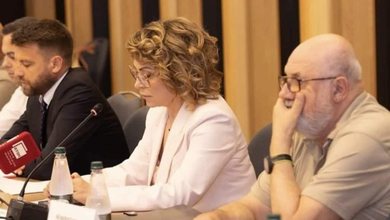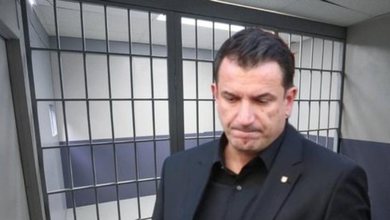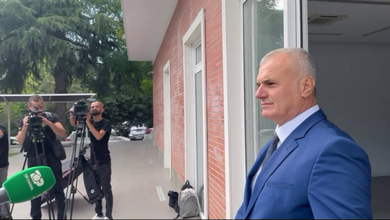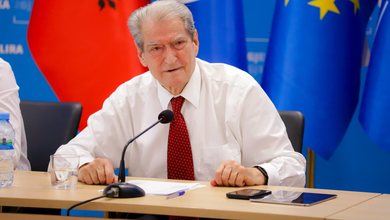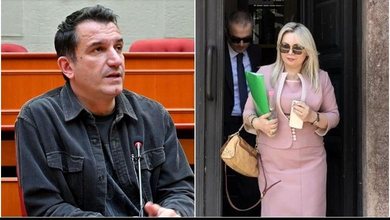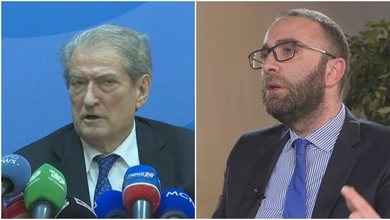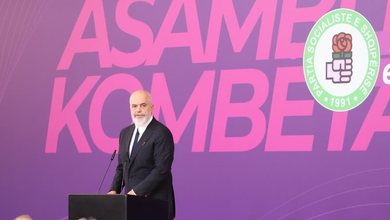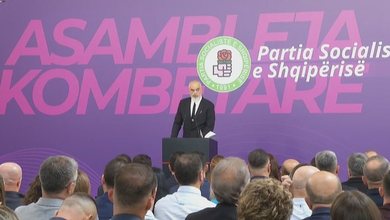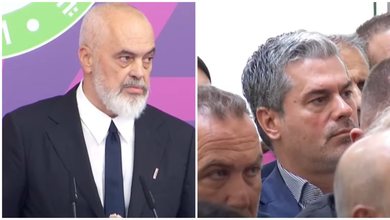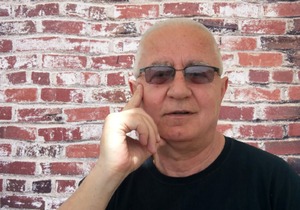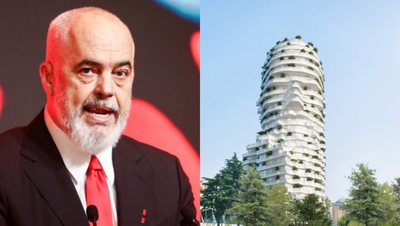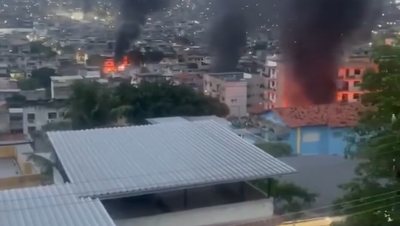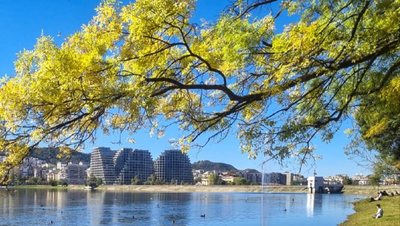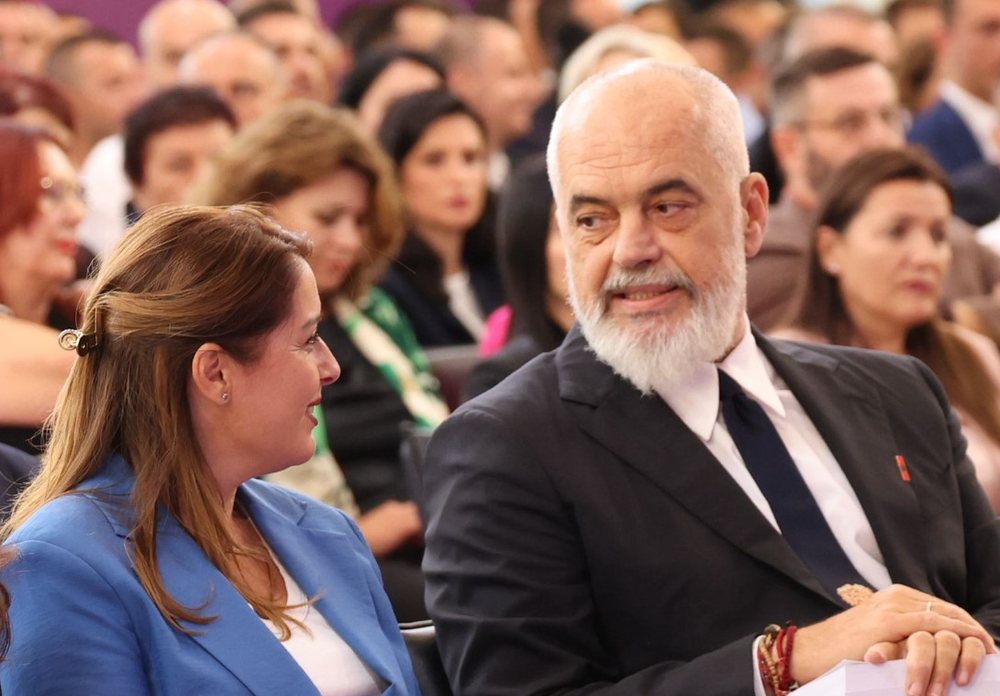
Prime Minister Edi Rama announced on Thursday the names of the new government cabinet that will be voted on by the Assembly emerging from the May 11 parliamentary elections, combining some of the current ministers with new arrivals from outside politics or with a low public profile.
He also proposed the Korça MP, Niko Peleshi, as the new Speaker of the Parliament, the Durrës MP, Klodiana Spahiu, as the Deputy Speaker, and returned Taulant Balla to the head of the Parliamentary Group, while he nominated one of his long-serving ministers, Ogerta Manastirliu, as a candidate for the leadership of the Tirana municipality, announcing partial elections to replace the current mayor Erion Veliaj, who is in prison on charges of corruption and money laundering.
Rama confirmed as No. 2 of his government Belinda Balluku, Deputy Prime Minister and Minister of Infrastructure and Energy, who has been in Rama's team since January 2019.
The relatively new ministers, Pirro Vengu at Defense and Petrit Malaj at the Ministry of Finance, both appointed to these positions in July 2024, also remained in the same departments.
At the Interior Ministry, Rama decided to try Albana Koçiu, who had held the position of Minister of Health since September 2023, while Mirela Kumbaro, a long-serving minister in Rama's cabinet, was moved to the Ministry of Education. She served for 5 years as Minister of Culture and, as of September 2021, headed the Ministry of Environment and Tourism.
Blendi Gonxhe will also remain in the cabinet, but he will have a smaller ministry to head, the Ministry of Culture and Tourism, as the other two functions he previously held, Economy and Innovation, will be headed by Delina Ibrahimaj, also a long-standing name in Rama's team, as former Minister of Finance and most recently as Minister of State for Entrepreneurship, a department that will no longer function.
Rama has decided to bring back to the government, in the position of Minister of Foreign Affairs, a long-time associate of his, Elisa Spiropali, who had been the Speaker of the Parliament for a year.
The two ministers of state, Adea Pirdeni for Public Administration and Anti-Corruption and Majlinda Dhuka as Chief Negotiator for Integration, are also confirmed in their duties.
Remaining outside the cabinet is the Minister of Justice, Ulsi Manja, who will be replaced by Besfort Lamallari, Deputy Minister of Interior since October 2017. A lawyer by profession, he has led the technical negotiations with the European Union, work for which he received public praise from Rama and which influenced his appointment to one of the ministries that has the most role in relation to the obligations that our country must fulfill for the "Fundamentals" chapter in these negotiations.
At the head of the Ministry of Health and Social Welfare, Rama proposes Evis Sala, a doctor with an academic career and clinical manager in Italy.
Former Mayor of Berat, Ervin Demo, will be Minister of State for Local Government, a position previously held by Arbjan Mazniku. The group of state ministers is joined by former MP Toni Gogu, for relations with Parliament.
The Prime Minister decided to entrust two ministries with important government policies to young people without a public profile, proposing as Minister of Environment, Sofjan Jaupaj, with an administrative career in the public sector and deputy minister in the ministry he will lead. While the Ministry of Agriculture is expected to be headed by an incumbent mayor, the mayor of Cerrik, Andis Salla, with a legal profession.
The Prime Minister also promised to create the first virtual ministry, an attempt to introduce Artificial Intelligence into public procurement management, but it is not yet clear how this department will function.
For political analysts, Rama's new cabinet after 12 years of governance does not bring any innovation in policymaking, as power continues to be concentrated in the hands of the prime minister.
Ermal Hasimja, a lecturer in Political Science, notes two main trends in the logic of government structuring.
"First, Rama has guaranteed continuity for some of his loyalists whom he considers capable. Thus, Balluku remains the government's number two, while Manastirliu ensures loyalty in the Tirana municipality, which is even more important than most ministries. Second, he has brought in or even recycled those whom he thinks can bring a refresh to the government's image combined with less problematic experiences regarding justice," said Hasimja.
"However, considering that Rama has all the power in his hands, it is difficult to think that the new government will change from the past. More than a change of policies, it is about a change of facade," he added.
Journalist Lutfi Dervishi calls the new cabinet a government of continuity that offers few surprises. “Instead of bold experiments, we have recycling experience. Instead of surprises, we have a familiar gallery that moves from one ministry to another like football players on the last day of the transfer window,” Dervishi wrote on his Facebook profile.
Dervishi further says that despite having been in power for 12 years, Edi Rama's government faces the same challenges it had in 2013, while declaring its ambition for long-term power.
"The Rama 4 government is not a government of surprises, nor of experimentation. It is a government of continuity, of a power that aims to extend until mid-century," Dervishi writes, raising the question that "when the promises of 2013 have not yet been fulfilled, will the patience of Albanians survive until 2050?"/BIRN


